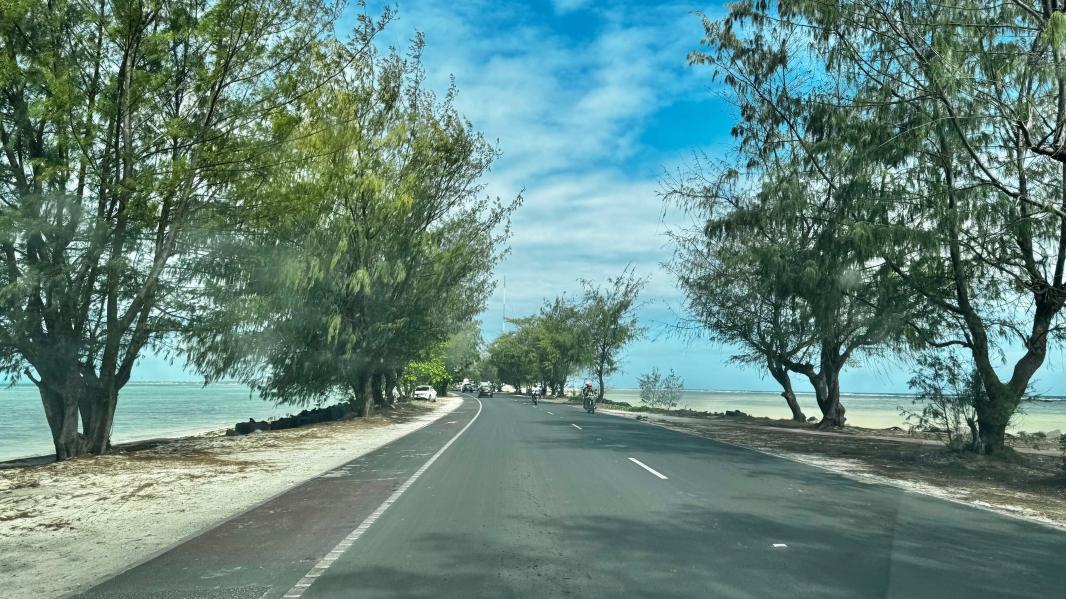
- EIB Global, with €2.5 million (AUD 4.1 million) in EU-backed technical assistance, will oversee the feasibility study to assess the construction of a multipurpose seaport and wave breaker.
- The study will evaluate the project’s technical, environmental and social viability for implementation on Kiritimati (Christmas) Island, Kiribati.
- This initiative is a key part of the EU’s Global Gateway strategy, enhancing infrastructure and connectivity in the Pacific region.
- Upon completion, EIB Global, alongside development partners, will consider the project for potential financing.
The European Investment Bank (EIB Global) and the Delegation of the European Union to the Pacific have signed a €2.5 million (AUD 4.1 million) contribution agreement to provide technical assistance for a feasibility assessment of the construction and operation of a multipurpose seaport and wave breaker on Kiritimati (Christmas) Island, Kiribati, in the Pacific Ocean.
Managed by EIB Global, this EU-funded technical assistance will finance feasibility, environmental and social studies to assess the port’s viability and potential impact, while identifying solutions to enhance maritime infrastructure to support fishing vessel transshipment, commercial container shipping, and tourism. The initiative aims to strengthen trade connectivity, drive sustainable economic growth and improve climate resilience in the region.
This initiative aligns with the European Union’s Global Gateway strategy, which aims to enhance connectivity between Europe and key global regions. The new port will strengthen Kiribati’s role as a strategic trade hub and support the development of essential logistics and transportation infrastructure, driving economic growth and regional integration.
EIB Vice-President Ambroise Fayolle, who is in charge of EIB operations in the Pacific, said: “The European Investment Bank is proud to support Kiribati in exploring the potential of a new multipurpose seaport on Kiritimati Island. This project reflects our strong commitment to combating climate change and enhancing sustainable infrastructure and connectivity in the Pacific region under the European Union’s Global Gateway strategy. By assessing the technical, environmental and social feasibility of the port, we aim to lay the groundwork for improved trade opportunities, economic growth and climate resilience. We look forward to working closely with our partners to bring this initiative to fruition.”
The Ambassador of the European Union to the Pacific, Her Excellency Barbara Plinkert said: «The European Union is committed to fostering sustainable development and regional connectivity, and the Kiritimati Island seaport project is a significant step towards achieving these goals. Through the European Union’s Global Gateway initiative, we support infrastructure that strengthens trade and enhances climate resilience in the Pacific. This feasibility study, supported by EIB Global, exemplifies our collaborative approach with partners to support the advancement of the 2050 Strategy for the Blue Pacific Continent and build a more interconnected, resilient and prosperous Pacific region.»
Background information:
The European Investment Bank (ElB) is the long-term lending institution of the European Union, owned by its Member States. It finances investments that contribute to EU policy objectives.
EIB Global is the EIB Group’s specialised arm devoted to increasing the impact of international partnerships and development finance, and a key partner in Global Gateway. We aim to support €100 billion of investment by the end of 2027, around one third of the overall target of this EU initiative. With Team Europe, EIB Global fosters strong, focused partnerships, alongside fellow development finance institutions and civil society. EIB Global brings the EIB Group closer to people, companies and institutions through our offices around the world.
Global Gateway is the European Union’s strategy to reduce the worldwide investment gap, boost smart, clean and secure connections in the digital, energy and transport sectors, and strengthen health, education and research systems. The Global Gateway strategy embodies a Team Europe approach that brings together the European Union, EU Member States and European development finance institutions. It aims to mobilise up to €300 billion in public and private investments between 2021 and 2027, creating essential links rather than dependencies, and closing the global investment gap.

European Union to support the development of a new multipurpose seaport on Kiritimati Island
©EIB
Download original

European Union to support the development of a new multipurpose seaport on Kiritimati Island
©EIB
Download original

European Union to support the development of a new multipurpose seaport on Kiritimati Island
©EIB
Download original

European Union to support the development of a new multipurpose seaport on Kiritimati Island
©EIB
Download original

European Union to support the development of a new multipurpose seaport on Kiritimati Island
©EIB
Download original
